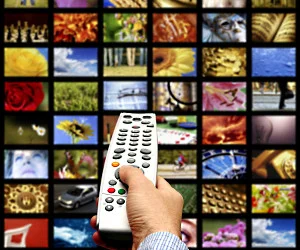A survey conducted by GambleAware found that almost three quarters of British consumers think there should be stricter regulations on gambling advertisements, and two thirds believe there are too many ads.
The report, which was published today (27th June), focuses on barriers that prevent people from talking about gambling problems. GambleAware and Ipsos conducted the study, which was based on responses from 4,207 adults.
One of the most striking findings is that there was a desire to have more regulations regarding gambling advertising. Some 74% would like to see more regulations on social media, and 72% for television.
GambleAware found that 67% of respondents agreed with the statement, and 66% were concerned about children’s impact. Further, 61% of respondents were against the use of gambling logos in football shirts.
Gambling harm caused by advertising
In addition, the report raised concerns regarding advertising and gambling. A quarter of those who gambled within the last 12 months did so after viewing an advertisement.
This number increases to 79% for those who have gambling-related problems. Adverts are a problem for 54% of those who fall into this category. Adverts also make it hard for 51% of people to watch football matches without feeling the urge to bet.
GambleAware CEO Zoe Osmond stated that gambling advertisements normalize gambling, making it appear like a harmless pastime without highlighting the dangers of addiction to gambling or harm.
We have released our report to urge the new government to take more steps to control gambling advertisements, especially around sports where young children can be exposed to them.
What are the steps to be taken?
GambleAware has made a number of recommendations on how to make gambling advertisements safer.
The ban includes a prewatershed on all broadcasting advertising, including on television, radio, and video-on-demand. It said that this would be a step up from the voluntary ban on advertising, which only covers around 2%.
GambleAware also calls for the inclusion of independent health warnings based on evidence in all advertisements, as well as effective signsposting to help. It says that this will direct people who are in need of support to appropriate places.
The suggestion is to prohibit gambling at sporting events. This would include the removal of sponsors from the stadium, sportswear, and merchandise. Premier League clubs already have agreed to remove gambling logos on their shirts starting in the season 2026-2027. GambleAware is now calling for an even wider ban.
GambleAware barriers and flags to support
The report examines barriers that prevent people from seeking assistance for harm caused by gambling. GambleAware discovered that 64% of those who had a gambling problem hadn’t spoken with anyone.
Three-quarters of this group say that stigma and discrimination has prevented them from speaking to someone. The main barriers to speaking with someone include feelings of guilt or shame (17%) and being worried about others’ judgment (13%).
Separately 24% of people haven’t spoken with anyone because they thought that they could handle the issue themselves. 67% of respondents said they spoke with someone in the first 12 months after identifying their issue. About 28% of people waited more than a year.
76% of people who spoke to someone said that they felt much better. 63% also said they felt better had they spoken with someone earlier. Gambling negatively impacts their mental health (23%) as well as negatively impacts finances (22%).
Instant win games were rated the most addictive by 71% of respondents. Sixty-four percent of respondents said that scratch cards are addictive.



